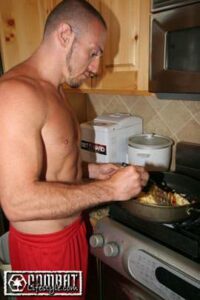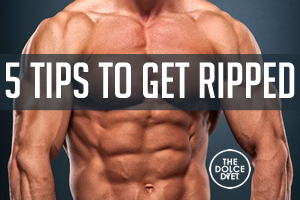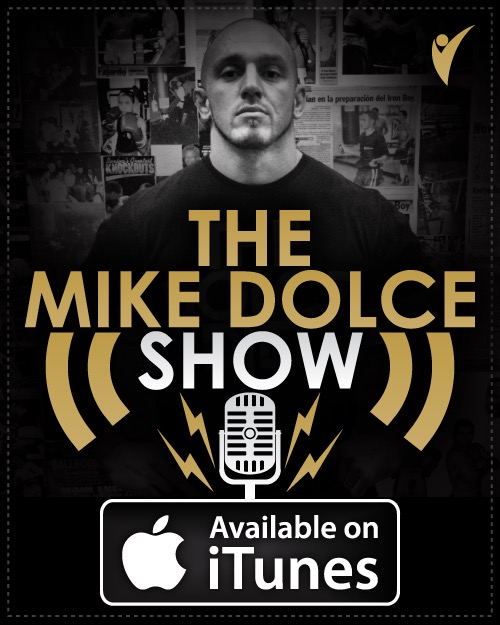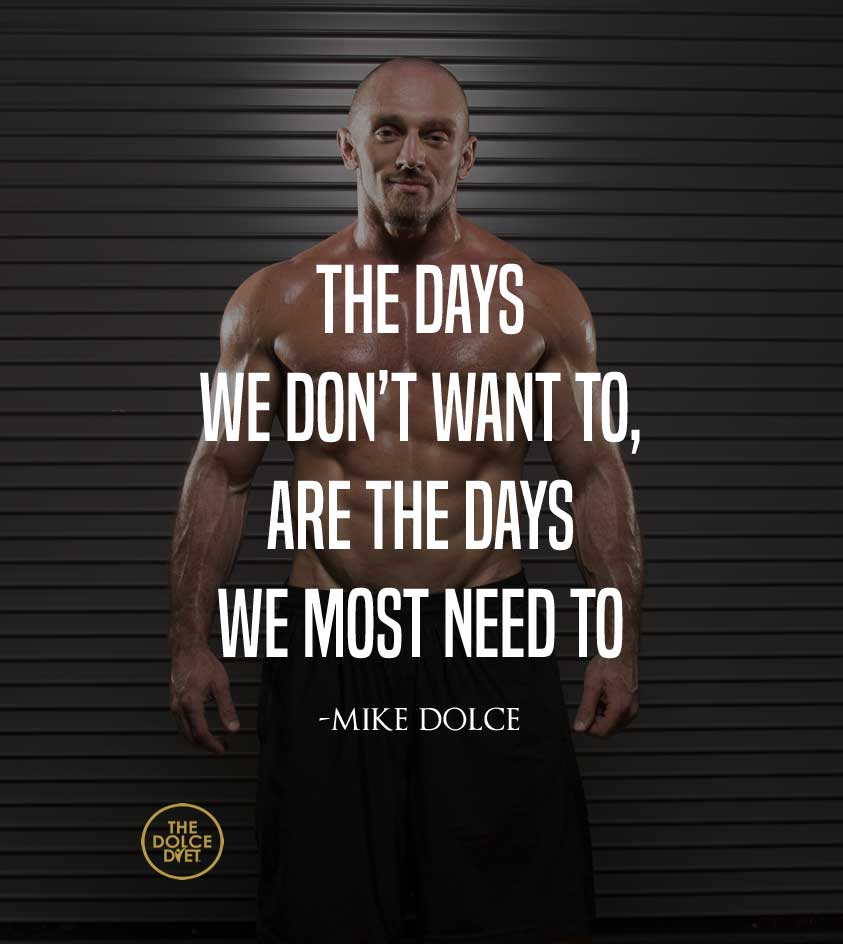
Working in MMA: Mike Dolce Talks About Peak Performance, Maury and Manicures
By Maggie Hendricks
 This week, Cagewriter is taking a look at the different jobs that help the MMA world turn. See part I of the series here.
This week, Cagewriter is taking a look at the different jobs that help the MMA world turn. See part I of the series here.
Today, we look at Mike Dolce, the peak performance coach who is known to help fighters improve their nutrition, and in turn, the way they fight. After working as a strength coach for 20 years and appearing on the seventh season of “The Ultimate Fighter,” Dolce has worked with fighters such as Quinton “Rampage” Jackson, Thiago Alves, Chris Leben and Vitor Belfort.
Cagewriter: What is your job like on a day-to-day basis?
Mike Dolce: I’m running multiple training camps from afar. Right now, in Vegas, I’m running Vitor Belfort’s training camp and Mike Pyle’s. I also have Thiago Alves coming up, and I’m his head coach. I cover so many hats with him, but Vitor and Pyle, I work specifically with their nutrition and weight management issues.
I say more peak performance coach because I do the meals, I do the weights, I do the overall training management. I’m the filter for the other coaches. I set up the training schedule from day to day. I even structure in their business meetings and social function as they get closer to fight time.
CW: Thiago, for example, you set his day?
MD: With Thiago, I literally set up his 24 hours, seven-day a week schedule. Which coach to go to, when he’s not allowed to train, because that can be a problem with him, so I have to pull him back a lot. I have to schedule in massage therapy or alternate therapies to make sure he’s not going to go to the gym.
On Sundays, I would schedule “Man-Day.” He and I would go have a nice breakfast, and then go to a spa. We’d get a haircut, massages, get our feet and hands fixed it, even the random facial. It’s important. I incorporate all those things to make sure my fighters are well-rounded.
I try to keep what I call “the positive bubble around fighters” and not let any negativity in. With Mike Pyle, I would get breakfast ready as he watched a fishing show on Versus, but now the Tour de France is on. It broke our rhythm, so instead of watching fishing, he switched to another channel with Maury and the Jerry Springer show. I’m in the kitchen, 20 feet away and I can feel the negative energy come out of the TV. I had to change the channel just to watch something more positive. You can’t start your day with that kind of negative mind frame.
CW: What is a fight week like for you?
MD: I try to get to town a day prior to the athlete, then I set up the hotel room and do the food shopping. For Chris Leben, he got into town on Monday night, and before he even got here, I packed a huge cooler with the proper foods that Chris was going to need. I made sure he had everything he was going to need, coordinate with his team, talk about what his weight cut process is going to be. On weigh-in day, I will be with him through the weigh-ins, and then go back to his room for the rehydration process. That carries all the way through to the minute he steps in the cage, performs, and then even afterwards, when I give him the food and fluids that need to go in his body to help him repair and recover from that. My job typically doesn’t end until Sunday morning.
CW: What is the best part of your job?
MD: The best part of my job is spreading health. My primary focus is not world titles, and it’s not money, or any of those things. It’s to make my athletes as healthy as possible. That’s the most rewarding part: seeing kids like Thiago Alves, not so much go out there and have a dominant performance, but it’s for him to feel so good and be so happy with himself because his body is in a positive state. Performance is just a by-product of that.
CW: But what’s the worst part?
MD: I wouldn’t point to a worst part and say that it’s bad, but the hardest part is dealing with the ups and the downs of the sport. You can work with an athlete, and have a great training camp and he’ll go out there on fight night, and something doesn’t work. I’m so emotionally attached to my fighters that it’s a hard roller coaster. For me, it’s multiple times in a single night.
Actually, the worst part is the time away from my family, but it’s a choice, but I’m not going to be a victim to it. It’s something we’ve decided over the next few years to do this.
Follow Mike Dolce on Twitter @TheDolceDiet.
Tomorrow’s working in MMA profile will focus on Bernie Profato, head of the Ohio Athletic Commission.
Original story posted on YAHOO.com



